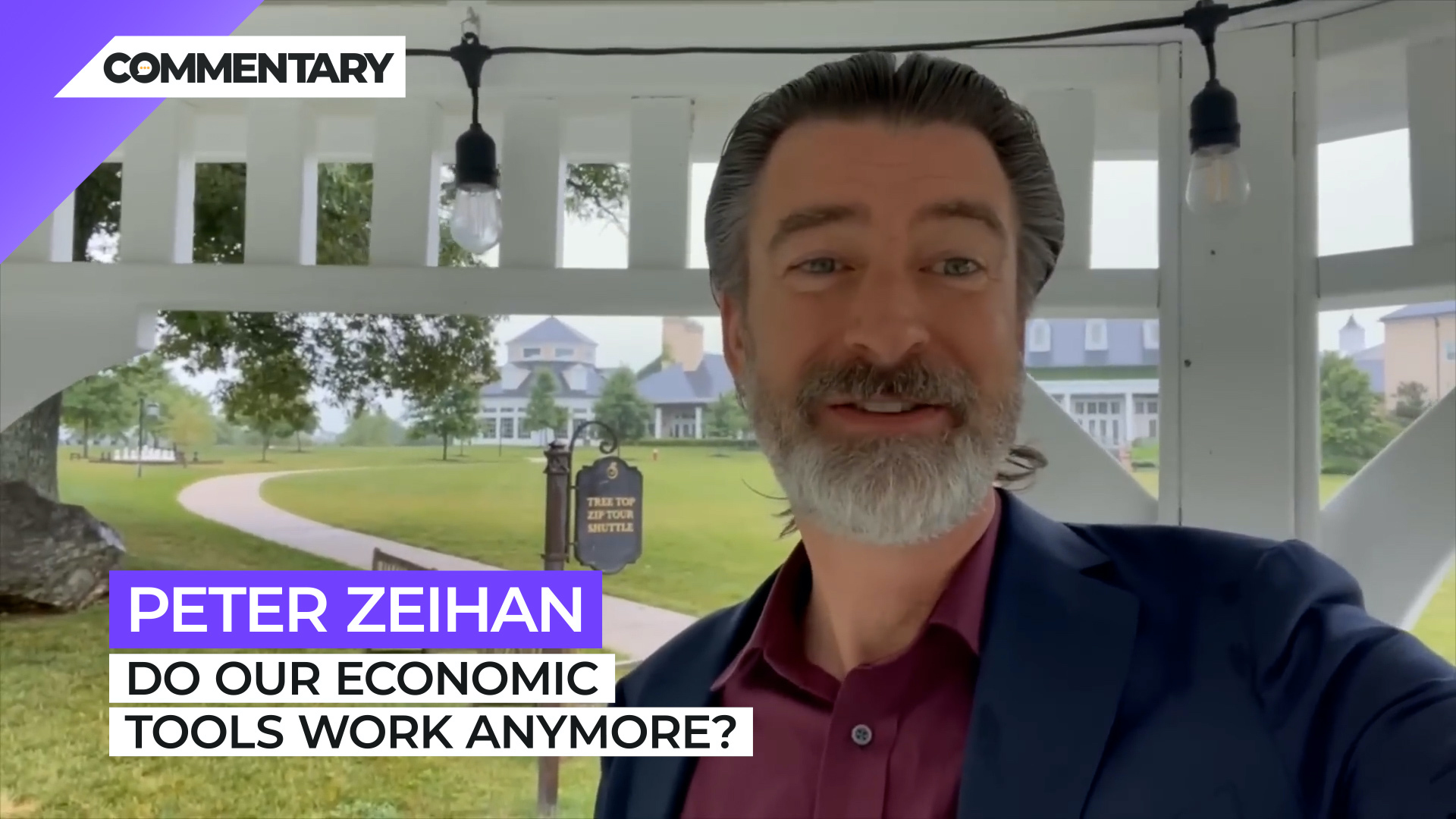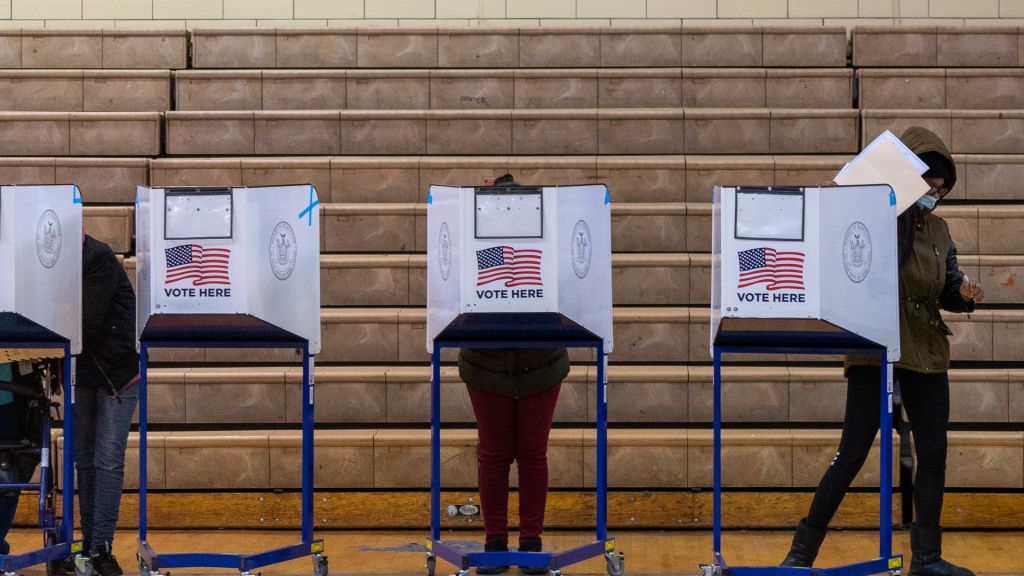
Commentary
-
Our commentary partners will help you reach your own conclusions on complex topics.
Hey everybody, Peter Zeihan here coming to you from the DC area where I’m about to give a work presentation in a room without electricity, because the power’s been out for the last 12 hours. So that’s fun. Two things I wanted to talk about today. The first is the nature of the economic system that we’re trying to wrestle with right now. The new book is called the end of the world is just the beginning and that’s in many ways. A lot of the tools that we have developed to regulate the economic system, most notably interest rates at the federal bank level…we’re not sure if they’re gonna work anymore.
The whole idea of interest rates is that you make the cost of borrowing higher, so that demand becomes more expensive so that people and companies do less of it. But for that to work, you have to have a consumption as a primary drive in your economic system.
Most of the world doesn’t have that any longer. Most of the advanced world hit the point of no return with their demographic aging back in the nineties and places like Germany and Italy and Japan now have more people in their fifties and their forties than their thirties and their twenties and so on. Now in the United States, it hasn’t hit nearly as hard, but we still have this huge generation, the baby boomers are retiring and a very small generation, the Zoomers who are coming into the system right now in calendar year 2022. That’s a shortage of 400,000 workers. And by 2034, that number will have increased to 900,000. This is structural inflation, and this is a problem on the supply side. And when you raise the cost of borrowing, it doesn’t just impact people who are trying to buy a car or a destroyer. It also affects people who are trying to build out… industrial plant and productive capacity and train new workers.
It’s not clear to me whether in places where this demographic decline is advanced, such as Germany, will interest rates even work anymore. Because you are capable of strangling now supply with it and it doesn’t do anything to demand because there isn’t any. The, the economic rules of the past may not apply anymore. Now in the book, I called this something called the end of more, the idea that every economic model that we have developed in the last 500 years, whether it’s fascism or socialism or communism or capitalism, they were designed for an environment where the pie got a little bit bigger every year, largely because of population growth. That’s no longer true.
And so when I look at the problems that the Fed, oh yeah, lovely sound in the background, those are emergency generators. Fun touch, huh? When you look at the problem that the US Federal Reserve is dealing with right now, they would like to get inflation under control and interest rates are the tool they have.
But if we’re in a world where the normal relationships between demand and consumption and supply and production are somewhat out of whack and might not go back, it’s not clear to me that they can raise interest rates to dampen demand without also crushing supply, because we’ve never had a significant problem on the supply side before. And because we are now facing the greatest labor inflation in American history, raising interest rates just might not be the right tool.
And then it comes to the executive branch and that’s a whole other discussion of whether the Biden Administration is up to the challenge. Okay. So that’s the first big topic. I’m not sure that the tools apply anymore.
The second big topic….we made the bestseller list. We came in number 12 on the NYT best seller list late last night. Um, I’m still trying to calm down, but thank you. Thank you. Thank you all. Thank you to everyone who helped put the book together. Thank you to everyone who shared it with your friends. Thank you to everybody who bought a copy or who says they’re going to buy a copy. This has been a wild ride for the last four months with the Russia war. I feel like I’ve dropped the ball in so many ways because there’s so much going on. I’m doing my best to keep up. My team is fantastic, but ultimately it’s for the viewers and the readers out there that have made this happen. So thank you. Thank you. Thank you. Okay. That’s it for me. I’m gonna go see if I can find a place with at least one bar of signal to upload this and I will see you guys next time. Bye.
-
Hurricane Helene hits US coast, Appalachia and beyond
Hurricane Helene hit Florida and Georgia overnight between Sept. 26 and 27 as a Category 4 hurricane, and accompanying storms will continue reaching deeper into the continental United States today. Dangerous flash flooding from the hurricane, known as storm surge, was some of the worst flooding that the Tampa Bay area has ever seen, and… -
Israel holds upper hand against Lebanon, Hezbollah and Iran
On Wednesday, Sept. 25, Hezbollah launched a ballistic missile at Tel Aviv in retaliation for Israel’s explosive pager attack that blew up devices across Lebanon. Although Israel’s defense systems intercepted the surface-to-surface missile, the attempted strike on Tel Aviv marked a significant escalation by Hezbollah. Since the siege on Gaza began, shortly after the Oct. 7, 2023,… -
The Sinaloa Cartel civil war
Fears of a civil war within the Sinaloa Cartel are growing as violence between competing factions within the cartel continues. The Mexican Army has dispatched around 600 elite troops to Sinaloa to help quell those fears, in addition to roughly 2,200 regular soldiers and National Guard. Watch the above video as Straight Arrow News contributor… -
New Ukrainian weapons hit Russia where it hurts
Ukrainian drones struck a major Russian ammunition depot, triggering a massive explosion that was captured on camera. According to the Ukrainian military, 2,000 tons of munitions had arrived at the depot before the attack. Over the past two years, Ukraine has significantly increased its domestic drone production, allowing it to scale up attacks on military… -
Weighing social costs vs. economic benefits on immigration
Global human migration is one of the defining elements of our current historical era, according to the United Nations. Migrants face both the incentives to leave — forced out by climate change, crime and corruption, extreme poverty or violence — and incentives for where to go, based on available job opportunities and so on. Migration…
Latest Stories
-

CNN faces defamation trial over Afghanistan evacuation report
-
 Getty Images
Getty Images
Self-driving vehicle company Waymo gets $5.6B to expand, despite challenges
-
 Getty Images
Getty Images
Massive fire at US base in South Korea extinguished after 19 hours
-
 Getty Images
Getty Images
Dodgers-Yankees World Series matchup the more classic kind of ‘moneyball’
-
 Getty Images
Getty Images
Federal judge orders Virginia to restore more than 1,600 voter registrations
Popular Opinions
-
In addition to the facts, we believe it’s vital to hear perspectives from all sides of the political spectrum.
Latest Opinions
In addition to the facts, we believe it’s vital to hear perspectives from all sides of the political spectrum. We hope these different voices will help you reach your own conclusions.
The opinions published in this section are solely those of the contributors and do not reflect the views of Straight Arrow News.

















Latest Commentary
We know it is important to hear from a diverse range of observers on the complex topics we face and believe our commentary partners will help you reach your own conclusions.
The commentaries published in this section are solely those of the contributors and do not reflect the views of Straight Arrow News.
Dr. Frank Luntz
Pollster and Political Analyst‘Awful’: Americans discuss Congress, Supreme Court, capitalism
‘Divided we fall’: Americans discuss concerns for democracy
‘That was great’: Undecided voters react to Walz-Vance debate